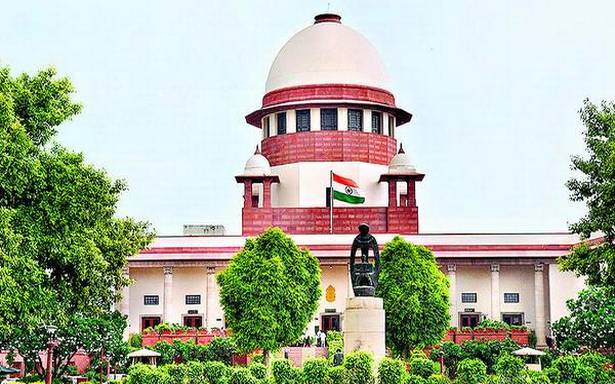A three-judge Bench led by Chief Justice Sharad A. Bobde said the issues raised by States are not common
The Supreme Court on Monday asked Attorney General K.K. Venugopal to compile the various issues being raised by States with regard to the application of a Constitution Bench judgment of 2006 in M. Nagaraj case, which had upheld the application of creamy layer principle to members of the Scheduled Caste/Scheduled Tribe communities in promotions.
A three-judge Bench led by Chief Justice Sharad A. Bobde said the issues raised by States are not common. “Promotions which have been made or proposed to be made in several States are in question in these matters. The issues are not common in all the cases which have arisen from several States,” the court order said.
“We therefore consider it appropriate and expedient in the interests of justice that the Advocates-on-Record appearing for each State should furnish a note clearly stating the issues involved in that particular State to the Attorney General for India within two weeks from today.” The court asked Mr. Venugopal to hold a conference with counsel for the States.
The case is based on a plea by the Centre to refer to a seven-judge Bench the question whether creamy layer should apply or not to the Scheduled Caste/Scheduled Tribe community while providing them reservation in government promotions.
The Centre’s plea came despite the Supreme Court, in September 2018, in Jarnail Singh case, reiterating the Nagaraj judgment of 2006.
The 2018 judgment, which was authored by Justice Rohinton F. Nariman, had refused the government’s plea to refer the 2006 Nagaraj judgment to a seven-judge Bench.
It had, while modifying the part of the Nagaraj verdict which required States to show quantifiable data to prove the ‘backwardness’ of a Scheduled Caste/Scheduled Tribe community to provide quota in promotion in public employment, rejected the Centre’s argument that Nagaraj misread the creamy layer concept by applying it to SC/ST.
Source: Read Full Article

